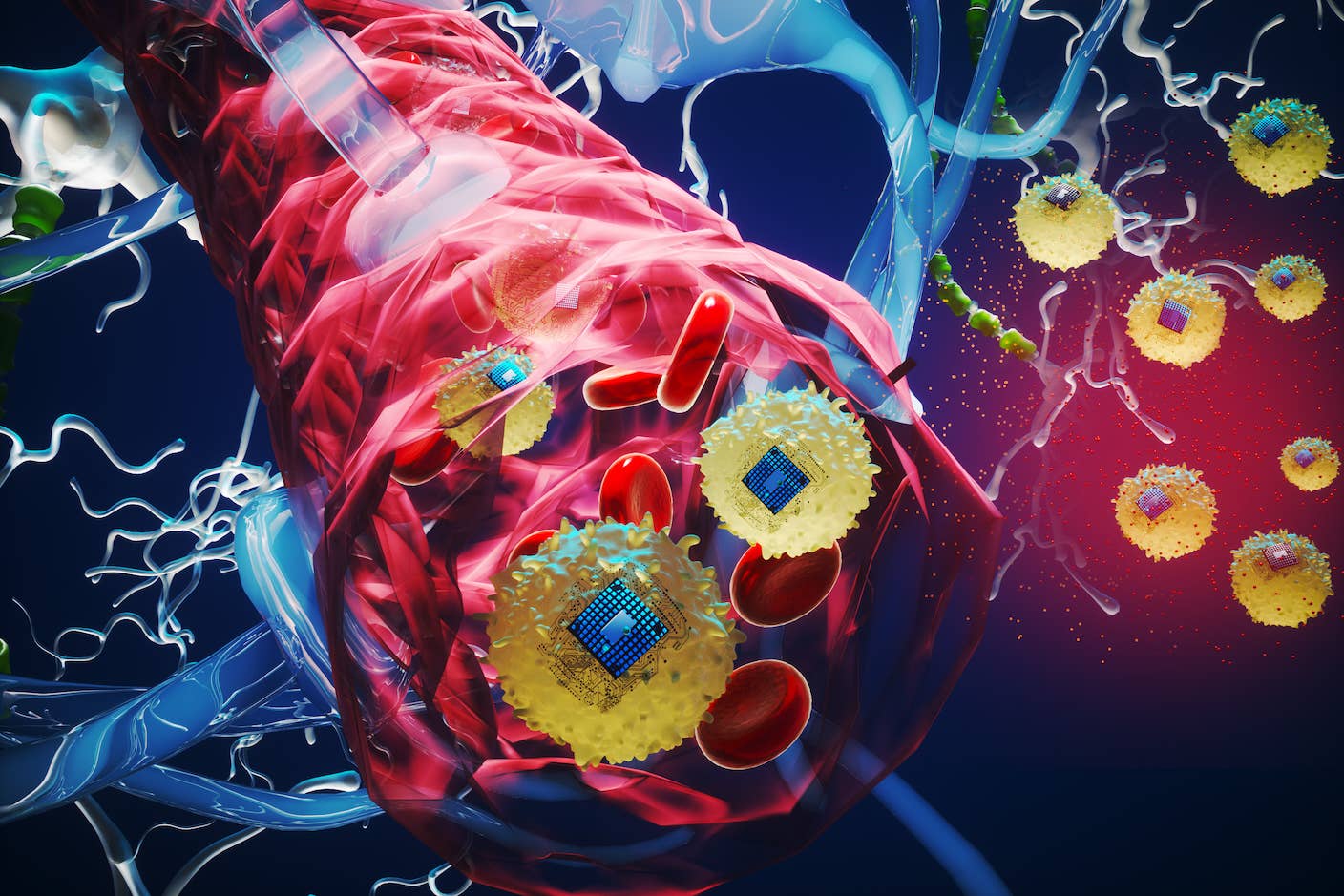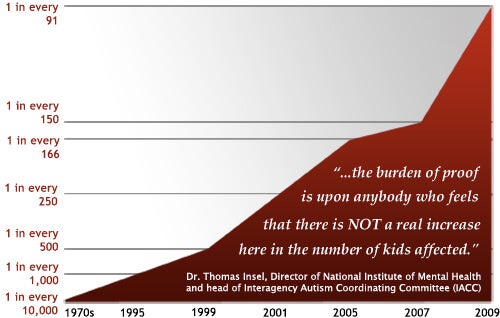Parents of Children With Autism, Unite! — MyAutismTeam May Be The Social Network You’ve Always Wanted

Share
Without a doubt, Facebook is the king of social networks. It boasts 800 million active users, 900 million objects (pages, group and events) and 7 million apps, making it a one-stop online community and virtual buffet of media, games, and other social activities. But for all its successes, Facebook cannot be everything, and certain communities cannot seem to establish a presence within the platform to meet all of their specific needs.
One such group is the autism community, which though incredibly diverse has thrived online in a loose association of dedicated forums (Wrong Planet), blogs, directories, news aggregators, Amazon lists, expert sites (Temple Grandin), nonprofit organizations (Autism Speaks), healthcare providers, businesses with autism-related products, and yes, even Facebook groups. But therein lies the problem. Raising children with ASD is a tremendous amount of work and most parents aren't prepared for how much life can be different from the idyllic family seen on TV. Because of the specific lifestyle, education, and healthcare needs of children with autism spectrum disorder (ASD), their parents must be constantly searching for information on the condition, updates on the latest research, doctors and therapists who work specifically with children with ASD, and tips on how to best raise their kids. All of this information is highly dispersed and can be daunting for those who are plugged into the community and an absolute nightmare for those parents who may be just learning what ASD is with a recent diagnosis of their child.
So what's the solution? A highly specialized social network called My Autism Team created just for parents of children with ASD.
My Autism Team is a social network and review site aimed at connecting parents of children with autism with each other as well as over 30,000 autism-service providers. On the social side, the site allows for status updates in response to a "How is your day?" prompt and captures conversations in a wall-like format. Users can generate a profile for each child with ASD and fill out a story page, which is a questionnaire aimed at giving more background information about the user's life with autism. Groups are called teams and can consist of both parents and providers. Beyond social options, the site also allows for users to review providers, which are primarily healthcare-focused, but can include restaurants, stores, and organizations that are "autism friendly." While parents can share their personal experiences with local providers on a variety of other sites, the MyAutismTeam platform keeps that information close and relevant. Finally, a Q+A section allows a user to post any question to the community at large and answer other parent's questions. Parents can also rate useful answers and search for questions. This feature alone may be the most important part of the site because it allows parents to quickly get information rather than wading through huge quantities of information found at other sites.
Altogether, the design of MyAutismTeam.com combines the essential components of a social network, a user review site, and a forum to generate an experience that is personalized and highly functional. The site went into beta last June and had around 14,000 members at its December launch, a testament to its successful mix of features. This early success of My Autism Team is also likely due to its targeting of a very specific niche of users who need help. Parents can often feel sidelined by the attention that researchers, doctors, and experts receive on one hand and children with ASD on the other, yet the parents must be highly active in their child's therapy, education, and day-to-day living. Furthermore, children with ASD tend to be developmentally delayed, so parents will be parenting for a lot longer than a child who develops normally. That's why the whole idea of a "team" works so well for the site, because that's what it will take to raise a child with ASD.
Now platforms for specialized online communities aren't anything new, as evidenced by Ning and MeetUp for local groups, but My Autism Team was conceptualized as sort of a Facebook-Yelp mashup. In fact, MyAutismTeam.com is the flagship of MyHealthTeams, a spin-off startup founded by Eric Peacock, general manager at Insider Pages, which allows users to review local businesses and services. Because the goal behind MyHealthTeams is to create condition-specific social networks to meet community needs, it may come as no surprise that a second social network, called MyBreastCancerTeam, is in the works. After all, the autism and cancer communities face a lot of the same issues: a complex condition with increasing amounts of research to stay on top of, a community that has as much good information about lifestyle as bad, a dependency on quality healthcare providers, and the need for peer support. There are also plans for creating hubs for other conditions, such as diabetes, Alzheimer's, and attention deficit disorders. It appears these sites will be sustained through advertising revenue for now.
From a technological point of view, the platform isn't introducing innovations aimed at competing with Facebook. What it does well is carve out a space in the online world, caters to an overlooked niche, and creates a brand that has a strong affinity within the preexisting community. While the next generation of social networks are really no threat to Facebook one-on-one, sites that are highly customized to become hubs for specific communities could definitely chip away at users' Facebook time. While sites like Ning capitalized on general interests for social aggregation, web users have a strong affinity to health and medicine information sites, so social networks organized around conditions will likely become commonplace. If these specialized social networks can learn, as Facebook has, to tap into mobile users by providing an app, thereby providing on-the-go functionality, the statistics suggest greater success.
Be Part of the Future
Sign up to receive top stories about groundbreaking technologies and visionary thinkers from SingularityHub.


My Autism Team appears to be the next step in the evolution of the online autism community and suggests that there can be an online social world outside of Facebook. It also reflects the changing view of how autism is perceived, from an epidemic that demands banning vaccinations and "curing" autism to a view that embraces autism and accepts it as lifestyle. With this site, MyHealthTeams has demonstrated the possibility of transforming social networks into tightly-knit lifestyle communities that can coexist with other condition-focused online communities, such as LiveStrong. But, like all social networks, the weight of success for My Autism Team falls on its users and therein is the risk. Will users actually click on the advertising that is bound to come? Will they continue to feed content into the site and remain active for the long haul? Will it truly become a daily hub for all things autism-related?
You can check out this impromptu interview with Eric Peacock at Health 2.0 to hear his thoughts on the site:
[Media: MyHealthTeams, TACA, YouTube]
[Sources: Mashable, MyAutismTeam, MyHealthTeams, San Francisco Business Times, Washington Post]
David started writing for Singularity Hub in 2011 and served as editor-in-chief of the site from 2014 to 2017 and SU vice president of faculty, content, and curriculum from 2017 to 2019. His interests cover digital education, publishing, and media, but he'll always be a chemist at heart.
Related Articles

This Light-Powered AI Chip Is 100x Faster Than a Top Nvidia GPU

How Scientists Are Growing Computers From Human Brain Cells—and Why They Want to Keep Doing It

These Brain Implants Are Smaller Than Cells and Can Be Injected Into Veins
What we’re reading

